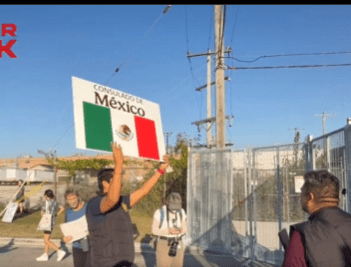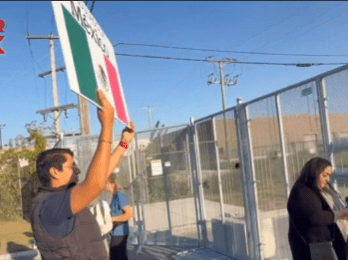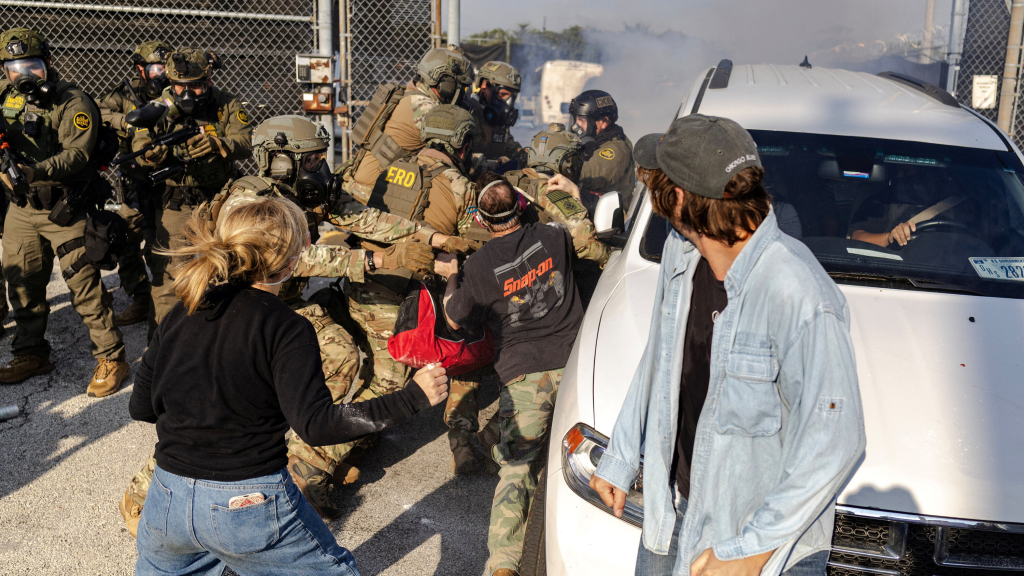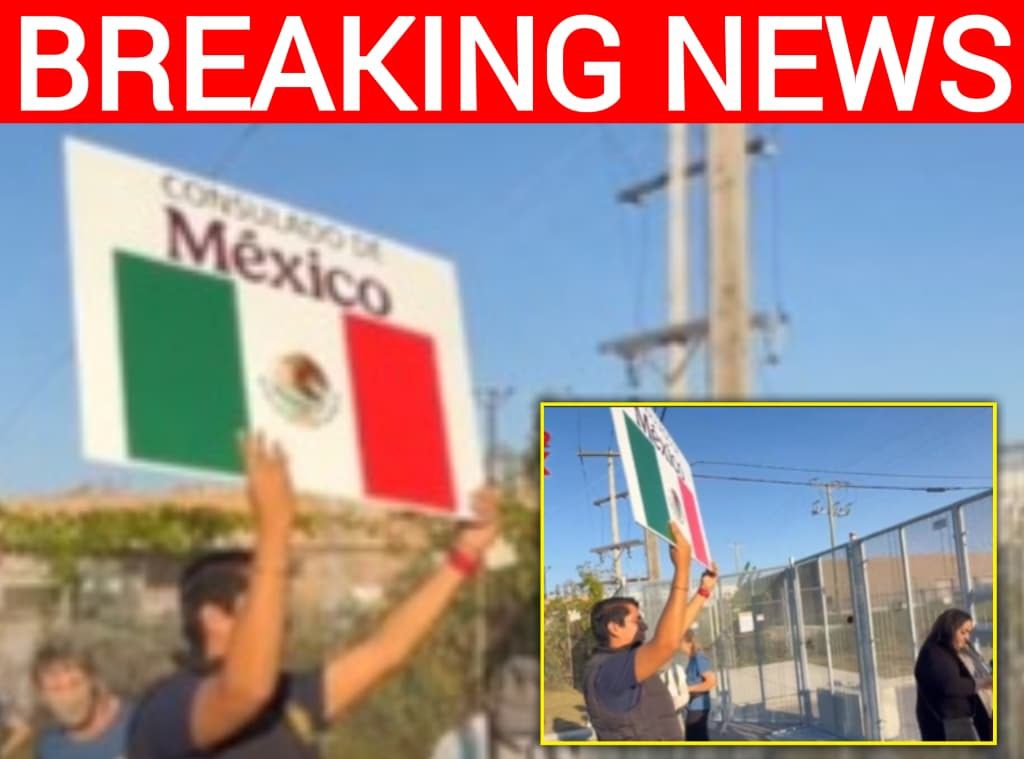Mexican Consulate Officials Wave Flags and Confront ICE Agents at Broadview Facility Amid Trump’s Immigration Crackdown
Tensions around immigration in America have been running high for years, but what unfolded in Chicago this week felt like a new flashpoint. Outside the ICE detention center in Broadview, a group of individuals identified as members of the Mexican consulate arrived carrying Mexican flags. What began as a demonstration quickly escalated into shouting and heated exchanges with ICE agents, leaving many stunned that foreign officials appeared to be directly involved in a protest targeting U.S. law enforcement.

The video circulating online shows consulate staff waving large flags while standing just outside the gates of the ICE facility. Voices can be heard raised in frustration, as some appear to be confronting federal officers over ongoing enforcement actions. The scene underscores just how raw the debate over immigration has become, especially under President Donald Trump’s administration, where deportations and border security remain top priorities. For some, the presence of the consulate was a symbol of solidarity with immigrants facing detention and removal. For others, it was seen as a violation of diplomatic boundaries, raising the question of whether foreign representatives should be participating in U.S. domestic disputes at all.

This event comes on the heels of several other high-profile confrontations involving ICE. In recent weeks, agents have used tear gas and less-lethal rounds to disperse demonstrators outside detention centers. In one tragic case, an ICE agent fatally shot a Mexican national, sparking outrage across immigrant communities and protests in several cities. The cumulative effect has created a highly volatile environment, where every new incident risks setting off another wave of anger and political controversy.
Diplomatic experts are watching closely, as the actions of consulate staff in Broadview could have ripple effects in international relations. By law, foreign officials are expected to represent their nationals and assist them, especially if they are detained, but direct confrontation with federal agents is unusual. The question of whether lines were crossed lingers, and voices like commentator Nick Sortor have already called for strong measures, including revoking visas and sending officials home. That idea is likely to stir debate within the State Department and could add another layer of strain to U.S.-Mexico relations at a delicate time.

What makes this story more complicated is the backdrop of America’s immigration policies. Sanctuary cities like Chicago have long resisted full cooperation with ICE, while federal authorities continue to press forward with arrests and deportations. Trump’s administration has emphasized toughness, promising supporters that enforcement will be consistent and uncompromising. For critics, the approach is heavy-handed and escalates tensions with immigrant communities. For supporters, it is exactly what they believe is necessary to maintain order and sovereignty. The scene outside the Broadview facility brought those two visions of America into sharp, emotional conflict.
As the video continues to spread across social media, reactions have been as divided as the country itself. Some argue that the consulate officials were only there to protect the rights of Mexican citizens caught in the system, while others believe their presence inflamed tensions and crossed a line into interference. What remains clear is that the immigration debate in the United States has reached a point where even foreign diplomats are being pulled into the fray, willingly or not.
The coming days will likely bring more scrutiny, both from the media and from Washington. Was this a one-off event driven by emotion, or does it signal a new phase of confrontation over immigration policy? Will the State Department take action, or will it let the incident pass quietly to avoid further straining relations with Mexico? No matter the outcome, the protest in Broadview is a reminder that immigration in America is not just a domestic issue—it is deeply tied to international relations, diplomacy, and the lives of millions caught in between.



